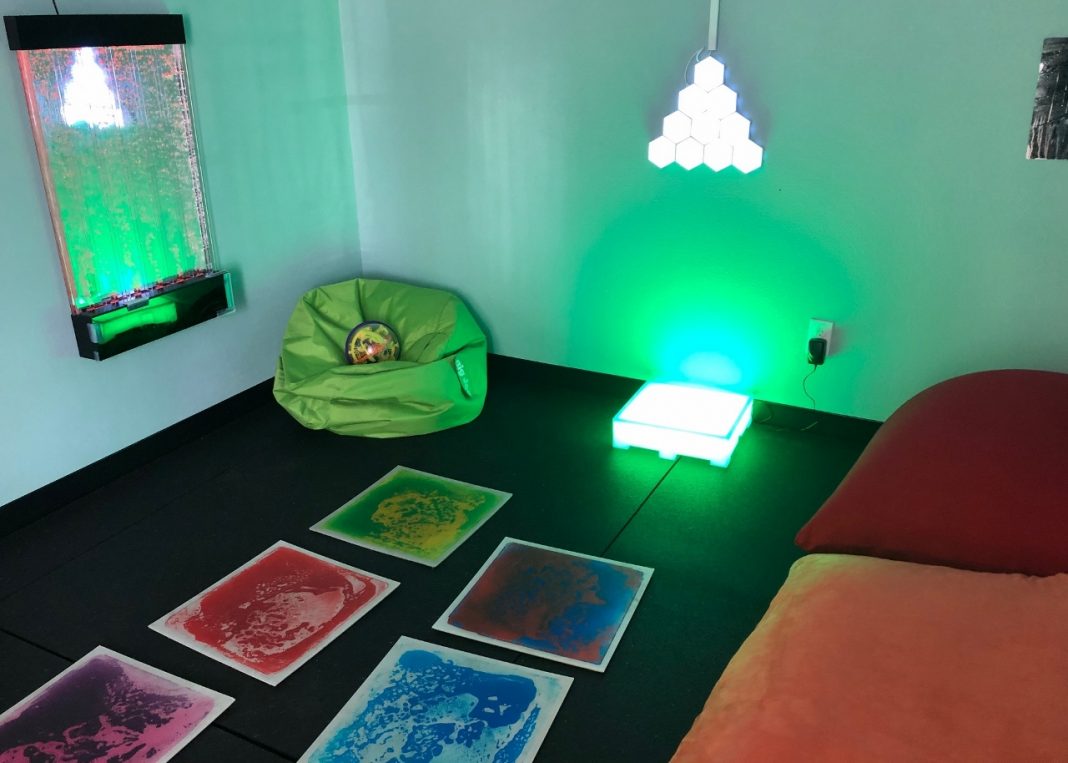Everyone has their own tolerances for sensory stimulants like light, movement, texture, pressure, sounds, foods and odors. But sometimes neurodiverse individual’s significant responses to stimuli may be challenging for them or others to manage. That’s why Sensory Tool House, LLC in Lacey offers much-needed help with adaptive items and programs.
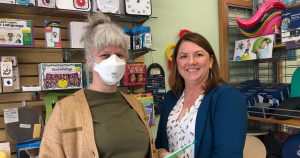
“It’s a human condition for everybody,” says Katie McMurray, Sensory Tool House CEO and founder, in describing sensory systems. However, she says some individuals are “neurodivergent.” That means they differ in mental or neurological function from what is considered typical and have a uniqueness in cognitive processing. Examples are autism spectrum disorder (ASD), attention deficit hyperactivity disorder (ADHD), dyslexia, Tourette’s syndrome, obsessive-compulsive disorder (OCD) and others. Persons with a neurodivergent brain or certain developmental issues may experience the world in different ways, including having substantial effects from sensory triggers.
The good news is Sensory Tool House has information, adaptive devices and programs to calm those reactions. “In November 2021 we opened our doors,” says McMurray. “The response from the community has been overwhelming, more than we could have anticipated, in a very positive way.” She says they received support from many community organizations and businesses.
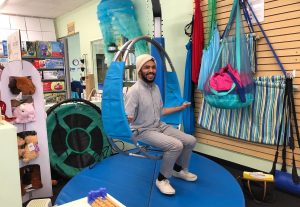
McMurray is neurodivergent and the mother of three neurodivergent children. She holds a master’s degree in educational guidance and counseling. She has worked with the neurodivergent community for more than 15 years as a teacher, volunteer, vocational counselor and certified disability management specialist. McMurray says her staff members are also neurodivergent. “They are the most productive, capable employees,” she says. “I could not ask for a better staff. They have all lived this experience.”
Sensory Tool House’s products provide specific calming or learning aids. You can come in to feel the material, try on vests, test sensory swings, and see if the tool is right for you. Items available for purchase include toys, swings, compression devices, dynamic seating, clothing, lighting, speech and language tools, books, games, floor coverings, stress balls, ear protectors, feeding utensils and more.
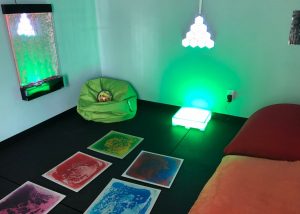
Sensory Tool House has a community room where it sponsors monthly events like a toddler playtime, tabletop game night, yoga and Lego night. Families can book the room for sensory friendly birthday parties.
It’s no surprise that communication issues or behaviors resulting from a neurodivergent brain can impact children in a classroom setting that has lots of stimulating activities and noise. To assist those students, schools often purchase sensory friendly equipment, specialized technology and adaptive tools such as handheld “fidgets” that enable the student to release energy or anxiety by spinning the device and thereby increase concentration.
Boston Harbor Elementary School is one of those schools. Denise Hammer, the school’s social services coordinator and counselor, says the Olympia School District Education Foundation provided a grant to purchase sensory and adaptive items. The school then placed shoebox-sized containers of sensory tools in classrooms, among other efforts. “Those tools can be hard to source,” Hammer says. “We reached out to Sensory Tool House.”

Hammer says their school staff also viewed Sensory Tool House’s sensory room to get more ideas for similar areas in their classrooms. The sensory room has calming lights and furniture. McMurray says sometimes neurodivergent persons need a “reset” time to let their brain rest from stimulating triggers. “We need to find how to incorporate that into our day,” she adds. This may mean creating a place that is quiet and calming, such as a dedicated meditation space. “There are lots of ways to do that such as having spaces in classrooms and at employment where you can sit down and calm your body without a lot of input, like not having a lot of words or posters on the wall.”
Another way to help the neurodiverse community is to decrease stimuli. McMurray says one method is to reduce fluorescent lighting. That type of lighting has flashes that not everyone can see but which may adversely impact a sensory diverse person’s ability to concentrate or may even cause migraines. “If those are changed out, that can have a domino effect in supporting that person,” she says.
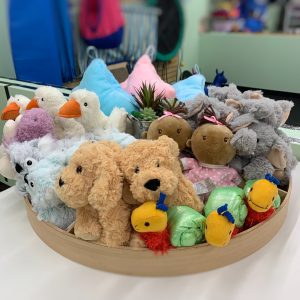
The neurodiverse community spans the age spectrum. As in schools, recognizing sensory differences and providing adaptive tools also makes the workplace more successful. “Understanding what it looks like in employment and providing support for divergent brains means seeing they often solve problems in a different way,” McMurray says. “Increasing awareness of our diversity and knowing how to support those persons in the workplace opens up your candidate pool.”
Sensory Tool House is a resource for the neurodivergent community members and their families, educators, therapists, employers and organizations. For more information, check out Sensory Tool House’s website.
Sensory Tool House, LLC
5831 Lacey Boulevard SE Suite J, Lacey
360.915.9457
Sponsored








































